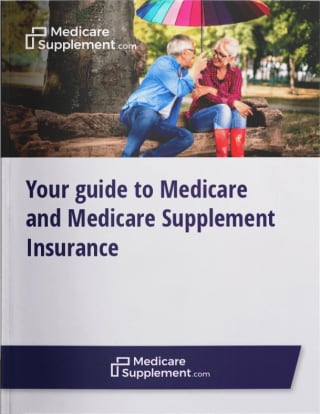Follow our Medicare Coronavirus News page for related information on coronavirus (COVID-19) and its impact on Medicare beneficiaries.
When the 2019 novel coronavirus disease (COVID-19) was declared a national emergency March 13, 2020, it opened the door for Medicare to take aggressive action against the outbreak.
The declaration of a national emergency allows the Secretary of Health and Human Services (HHS) to authorize the Centers for Medicare and Medicaid Services (CMS) to take additional actions under Section 1135 of the Social Security Act.
What is Medicare doing to help fight coronavirus (COVID-19)?
The actions that can and will be taken by CMS as a result of the declaration of a national emergency include the following.
Greater freedom for hospitals and other health care facilities
Certain federal coverage requirements for Medicare, Medicaid and the Children’s Health Insurance Program (CHIP) will be waived or modified.
Several blanket waivers will be issued, and the CMS Regional Offices will review additional provider-specific requests.
The lifting of these requirements will help Medicare and Medicaid services continue uninterrupted for the beneficiaries who need them.
Flexibility for provider enrollment
Certain Medicare enrollment screening requirements are temporarily suspended, including site visits and fingerprinting for non-certified Part B suppliers, physicians and non-physician practitioners.
CMS will also allow licensed providers to administer services outside their state of enrollment and establish a toll-free hotline providers can use to enroll and receive temporary Medicare billing privileges.
This means that more device suppliers and health care providers can work to give Medicare beneficiaries the care they need without having to wait for certain bureaucratic measures and approvals.
It also means that some health care providers could potentially travel to provide care in higher-need areas that are in need of more caregivers due to COVID-19 infections.
Increased relief for state Medicaid agencies
An emergency declaration allows state Medicaid agencies a wider range of flexibility to:
Permit out-of-state providers to render care
Temporarily suspend certain provider enrollment and revalidation requirements
Allow providers to administer care in alternative settings
Waive requirements for prior authorization
Temporarily suspend pre-admission and annual screenings for residents of nursing homes
These measures can help allow Medicaid beneficiaries to receive necessary care as providers are potentially forced to adapt and offer services in new settings and in states other than where they typically practice.
Suspension of enforcement activities
CMS may now temporarily suspend non-emergency survey inspections, which will allow providers to focus on the health and safety threat at hand, rather than working to meet certain inspection requirements.
President Trump takes additional measures to help Americans amid COVID-19 pandemic
President Donald Trump’s declaration of a nationwide state of emergency affects several other aspects of how Americans receive health care during the coronavirus (COVID-19) pandemic:
Up to $42 billion from the Disaster Relief Fund can be released to assist local state governments in their response to the outbreak.
States will be able to implement cost-sharing with the federal government for protective measures.
State governments can more easily sidestep certain federal and state laws and regulations in fighting the pandemic.
At the time of the declaration of a national emergency, 39 states had also declared a state of emergency along with numerous cities and counties.
Christian Worstell is a health care and policy writer for MedicareSupplement.com. He has written hundreds of articles helping people better understand their Medicare coverage options.



